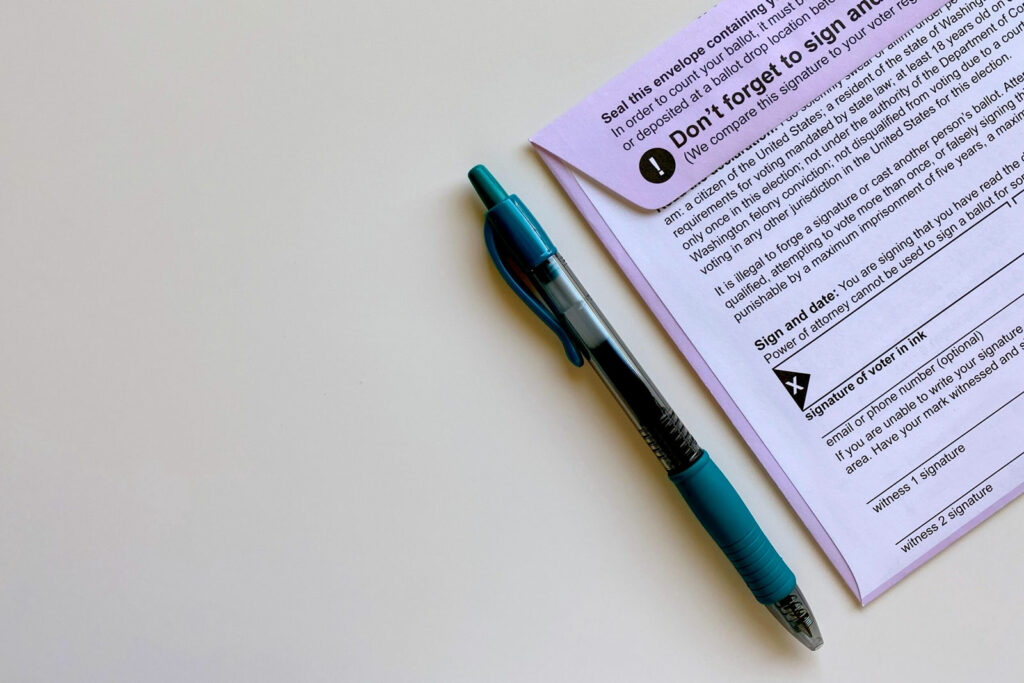Guest opinion: When discussing move to even-year elections, language matters

Friday, May 20, 2022
By Celeste Landry
“You keep using that word. I don’t think it means what you think it means.” – Inigo Montoya, The Princess Bride
In this time of misinformation and disinformation, we need leaders who use accurate, non-inflammatory language to argue their points. We also need a news media that calls out incorrect or inappropriate terminology. Mis- and disinformation can make the task of correctly diagnosing problems and coming up with viable solutions much more difficult.
Ordinary citizens may debate an issue using language that is comfortable for them, but government officials and the media have a special responsibility to correctly represent the sides of the argument. (Think of John McCain correcting the woman who said that Barack Obama was an Arab.) A functioning democracy is dependent on trust in our institutions.
At the Tuesday, May 10, council discussion on moving municipal elections to even years, council member Matt Benjamin said, “… it’s about lifting up those that are disenfranchised and don’t vote in odd years.”
I and, I’m sure, many election administrators in Colorado, would like to push back strongly against his use of the term “disenfranchised.”
Disenfranchisement is defined as “the state of being deprived of a right or a privilege, especially a right to vote.” A person is disenfranchised when they are not allowed to vote in an election, be it an odd or an even year. I don’t think that council member Benjamin meant that these people are not actually allowed to vote.
How could Benjamin have passionately and precisely conveyed discrimination that voters may perceive due to the election system’s structure? How about another (justifiably) emotionally charged term – voter suppression?
Voter suppression is an action that decreases voter turnout, often targeted at particular demographic groups. A question for the council discussion: What city, county or state governmental actions suppress the vote in odd years that don’t suppress the vote in even years?
Requiring voters to pay postage on mail-return ballots might be considered a form of voter suppression or even a small poll tax, but it is applicable in both odd and even years.
Colorado mail-ballot elections require voters to have a valid mailing address. People who have moved and want to vote in an odd or an even year must update their address – online, in person or in writing.
Perhaps this is an example of voter suppression in odd years: For higher-turnout even-year elections, the County Clerk opens more Voter Service and Polling Centers to provide a good level of service for the increased demand.
If voter suppression is not an apt term to use, what name can we call the prevalence across the U.S. of lower turnout in odd-year elections? Drop-off is the name for the decline in turnout between two different types of elections, e.g., between presidential elections and federal midterm elections or between even-year and odd-year elections.
Thanks to Boulder Beat for providing recent drop-off numbers in the city — nearly 30,000 votes from presidential year 2020 to 2021, and 22,406 from midterm year 2018 to 2019. When looking at only local ballot measures, 17,000 fewer people vote in odd years than even ones.
Clear structural differences exist between even- and odd-year elections. Federal and state candidates and any ballot issue can be on even-year ballots, but only local candidates and limited ballot measures are on odd-year ballots. If Boulder moves to even-year municipal candidate elections, that could exacerbate the drop-off for the ballot measures and school board elections that remain in odd years. How many people vote in odd-year elections primarily to vote for city council candidates? We don’t know.
I want to see increased turnout at every election, not only in November of even years. Some ideas: The new mayoral ranked voting election may increase excitement about city elections. Paying council members more could attract more and more diverse candidates, leading to more competition, which drives voter turnout. I’ve also advocated for re-enfranchising almost-18-year-olds in primary elections in order to start young voters on a lifelong habit of voting.
Let’s have a comprehensive, community-wide discussion of these and other good ideas to increase voter participation, not only focus on one idea. For each and every idea, arguments on the merits, rather than on distortions, are more productive.
Government officials and the media could lead by using the term “drop-off” to describe the problem that the proposal for even-year municipal elections is trying to solve.
Celeste Landry is a member of the League of Women Voters of Boulder County, as well as a volunteer lobbyist for the state League at the Capitol. She is writing here in her own capacity, not on behalf of LWV. Celeste is also a member of the NAACP’s Boulder County chapter, an executive committee member of the Boulder County Democratic Party, and a Boulder Beat Opinion Panelist.
This opinion does not necessarily reflect the views of Boulder Beat or its writers.
Boulder Beat Opinion Panel members are writing in their own capacity. Their views do not necessarily reflect those of Boulder Beat. Got a different take? Write a Guest Opinion using our op-ed and comment guidelines or submit an application to join the Opinion Panel. Opinion Boulder city of Boulder disenfranchisement elections turnout voter drop-off voter suppression
Opinion Boulder city of Boulder disenfranchisement elections turnout voter drop-off voter suppression

